Slip Disk Treatment Cost in India
Unlock Exclusive Discount : Your Gateway to Premium Healthcare with Medsurge India Health Value Card.

Unlock Exclusive Discount : Your Gateway to Premium Healthcare with Medsurge India Health Value Card.

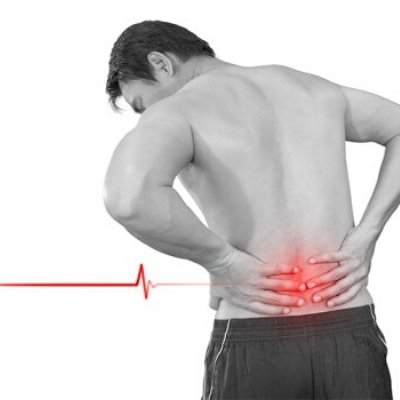
Spinal diseases can pose serious health risks. The spine consists of multiple vertebrae, each containing intervertebral discs with a gelatinous center known as the nucleus. The nucleus is encased in a robust layer of cartilage called the annulus. Damage to the disc tissue is commonly known as a slipped disc, which can lead to discomfort in the lower back and leg muscles. Should your condition deteriorate, surgical intervention for a slipped disc may be necessary, often incurring significant expenses. Continue reading to discover more about slip disc surgery cost in India and strategies for managing these expenses.
Slip disc treatment cost in India ranges from 4500 USD to 10,000 USD. The cost of slip disc treatment can vary significantly based on the hospital location, the technology used, the type of surgery, and the experience of the surgeon.
Here are the following factors which can affect the cost of slip disc treatment in India.
A herniated disk, commonly known as a slip disc, is a spinal injury that affects the vertebrae, which are the series of bones extending from the base of the skull to the tailbone. Interspersed between these vertebrae are circular structures called disks, which act as cushioning agents, allowing for flexible movement. When a disk becomes torn or begins to leak, it is classified as a herniated disk. This condition is frequently diagnosed and treated by neurosurgeons, who specialize in musculoskeletal disorders.
A slipped disc can manifest in various forms, depending on the type and location of the damage to the disc. The following are the prevalent types:
This is the most frequently encountered type of slipped disc. It occurs when the disc bulges outward without tearing the outer fibrous ring (annulus fibrosus). The bulge generally affects a significant portion of the disc, causing it to extend into the spinal canal while remaining intact.
In this variant, the nucleus material of the disc breaches the annulus fibrosus but stays contained within the disc itself. The difference between protrusion and extrusion lies in the shape and position of the herniated material.
This is a more serious condition where the nucleus material not only breaks through the annulus fibrosus but also detaches from the disc, becoming free within the spinal canal. This can result in considerable nerve compression and pain.
Although often used interchangeably with a herniated disc, a bulging disc is somewhat distinct. It refers to the disc bulging uniformly around its entire circumference, representing a more generalized expansion rather than a localized herniation.
Herniated disk symptoms differ depending on the specific spinal region affected, typically worsening with movement and improving during rest.
For a herniated lumbar disk in the lower back, individuals often report sciatic nerve pain, which is characterized by a sharp sensation that travels from one side of the buttocks down the leg and may extend to the foot. Other common symptoms associated with a herniated disk in the lower back include:
– Back Pain: Discomfort in the lower back area.
– Tingling or Numbness: Abnormal sensations in the legs and/or feet.
– Muscle Weakness: Noticeable weakness in the muscles.
In the case of a herniated cervical disk in the neck, symptoms may include:
– Shoulder Blade Pain: Discomfort felt near or between the shoulder blades.
– Radiating Pain: Pain that spreads to the shoulder, arm, and sometimes the hand and fingers.
– Neck Pain: Discomfort primarily at the back and sides of the neck.
– Increased Pain with Movement: Worsening of pain when bending or turning the neck.
The primary reason for a slipped disc is the gradual deterioration of the spinal discs. With aging, these discs lose their flexibility, making them increasingly susceptible to injury or rupture from even slight strains or twists.
Any action that exerts pressure on the spine can potentially result in a slipped disc. This may occur due to:
A slipped disc is typically diagnosed through an assessment of your symptoms, medical history, and a physical examination.
During the physical examination, your physician will evaluate your nerve function and muscle strength to identify the source of your pain and discomfort. You may be asked to lie on your back and perform specific leg movements to help pinpoint the cause of your pain.
Your physician may also:
Furthermore, your physician may recommend one or more of the following imaging tests to confirm the diagnosis and identify which nerves are impacted:
The approach to treating a slipped disc is determined by the severity of the condition. In cases of mild slipped disc, physicians typically suggest starting with conservative treatment methods.
Non-surgical options may include one or more of the following:
Surgery may be advised by your physician under the following circumstances:
In these situations, a discectomy is typically performed by the surgeon to excise part of the herniated disc. This procedure aims to reduce nerve pressure, alleviate pain, and enhance strength in the legs and back. Consult with an orthopedic surgeon to identify the most appropriate treatment options for your situation.
Many patients come for slip disc treatment in India primarily due to the significantly lower cost of surgery compared to Western countries, while still having access to high-quality medical care and expertise from skilled spine surgeons, often utilizing advanced minimally invasive techniques and modern technology in reputable hospitals.
Key reasons why patients choose slip disc treatment in India:
Surgical procedures for slipped discs in India are significantly cheaper than in many developed nations, making it an attractive option for cost-conscious patients.
India boasts a large pool of experienced spine surgeons and well-equipped hospitals with advanced diagnostic tools and surgical techniques, ensuring quality treatment.
Many Indian hospitals offer minimally invasive spine surgeries like endoscopic discectomy, which require smaller incisions and faster recovery times.
India has a strong reputation in the field of orthopedics, with many specialists focusing on spine surgeries.
Many Indian hospitals prioritize patient care and provide personalized treatment plans to address individual needs.
Helpful: Top 10 Spine Surgeons in India
Medusrge India is a trusted medical tourism company that has helped thousands of patients from all over the globe. We focus on finding the best medical options that fit your needs and provide a list of qualified and reputable doctors and hospitals to help with your health issues.
We also create a treatment plan that suits your budget. Additionally, we assist patients in obtaining travel permits, medical visas, and other essential requirements. If you or you’re loved one are looking for radioactive iodine therapy in India you can get in touch with us.
A: No, Slipped disk is a very common condition, and it’s frequently over-diagnosed. Many people with back pain of sudden onset which get better in 2-5 days may only have muscle, ligaments, or facet joint-related pains. In addition, the pain might be from a ripped disc rather than a slipped disc.
A: Both of these are distinct, for example in the event of a cushion, if it tears it’s a torn disc but when it tears and cotton comes out it is a slipped disk, and the substance which comes out causes pressure on the nerves. So the pain from a ripped disc is mostly back pain whereas by a slipped disc it’s leg and back pain.
A: They’re simply pain-relieving modalities. By pressing on the leg you can’t push the disc back. These modalities do is confuse the brain (where the pain is felt) by providing a pressure stimulus. In case you have to get better then it keeps you comfortable until that happens.
A: They are pain-relieving modalities rather than a cure. They’ll cause no harm so long as excess pressure isn’t applied throughout massages.


Spine Surgeon
Senior Consultant
10+ years
Meitra Hospital, Calicut, Kerala
View Doctor



Spine Surgeon
Consultant
10+ years
Apollo Hospitals, Greams Road, Chennai
View Doctor
Spine Surgeon
Consultant
22
Bombay Hospital & Medical Research Center, Mumbai
View Doctor


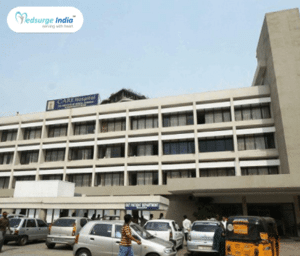
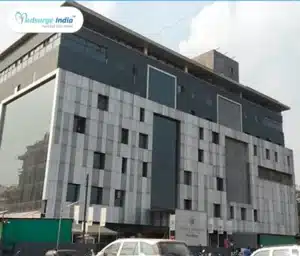
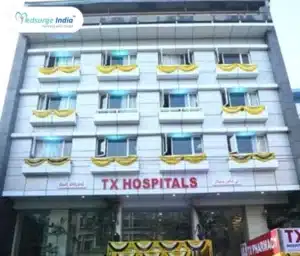
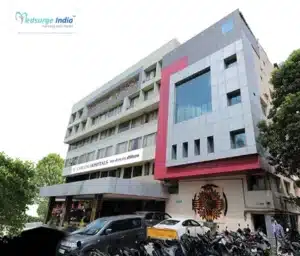



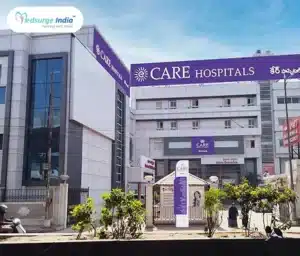
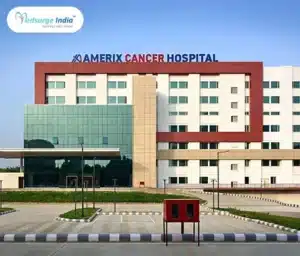
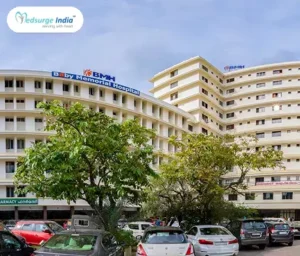
By using our site, you agree to our Terms and Conditions, Privacy Policy and Refund Policy. Medsurge India provides reliable healthcare information and treatment options to support informed decision-making. Our content is designed to support and complement the guidance of your treating doctor, helping you feel informed and confident throughout your healthcare journey. We also Accept International Payments.

Copyright © 2025 NSM ONLINE SOLUTIONS PRIVATE LIMITED. All rights reserved.